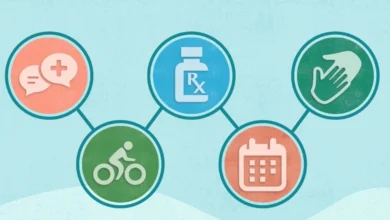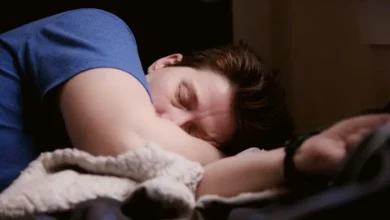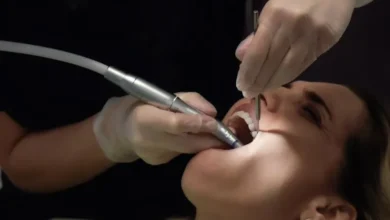Resources and Support for Coping with Sensory Loss After Brain Injury

Sensory loss following a brain injury can profoundly affect an individual’s ability to engage with the world. The impact can be challenging and disorienting, whether it involves diminished sight, hearing, taste, smell, or touch. Effective management and support are crucial for those navigating this new reality as they adapt to significant changes in their sensory perceptions.
In Cincinnati, those suffering from sensory loss due to brain injury have access to various resources that can assist in their rehabilitation and adaptation processes. Additionally, securing legal aid for brain injury victims in Cincinnati is essential. Qualified legal professionals can help navigate the complexities of compensation claims, ensuring that individuals receive the necessary support for their recovery.
Contents
Utilizing Assistive Technologies
Advancements in technology have resulted in the development of a variety of assistive devices that can considerably aid individuals in coping with sensory loss. For instance, auditory aids have evolved beyond traditional hearing aids, including sophisticated cochlear implants and mobile apps that amplify and clarify sound. These technological innovations have transformed the way individuals with hearing loss interact with the world, improving their ability to communicate and engage in social activities.
Similarly, text-to-speech software and electronic readers offer greater independence in accessing written information for those with visual impairments. These tools have made it possible for visually impaired individuals to access various forms of literature, including books, newspapers, and magazines, without requiring sighted assistance. As a result, individuals with visual impairments can participate more effectively in educational and professional settings, expanding their opportunities for personal growth and success.
Furthermore, tactile feedback devices are emerging as efficient tools for those who have lost their sense of touch, helping them navigate their surroundings more safely. These devices provide sensory feedback through vibrations, allowing individuals to perceive and respond to tactile stimuli, such as texture, temperature, and pressure. This technology has significant implications for those who have lost their sense of touch due to injury or disease, as it can help them detect potential hazards and navigate their surroundings more effectively.
Tailored Rehabilitation Programs
Individuals who experience sensory loss after a brain injury require rehabilitation programs that are tailored to their specific needs and goals. These programs aim to enhance residual sensory functions and teach patients new ways to interpret sensory data. A team of specialists, including neurologists, occupational therapists, and audiologists, work together to create a comprehensive treatment plan.
Rehabilitation programs involve activities such as sensory re-education, where patients learn to use their other senses more effectively to compensate for the lost one. For example, patients with hearing loss may learn to use visual cues to communicate. Mobility training is also important to ensure patients can navigate their environment safely.
Engaging in these programs can significantly improve an individual’s quality of life and help them adapt to their new sensory limitations. With the help of a team of specialists, patients can learn new skills and strategies to overcome the challenges that come with sensory loss. The rehabilitation programs provide a supportive environment for patients to work on their goals, and the specialists can adjust the treatment plan as needed to ensure the best possible outcomes.
Support Networks and Counseling
Support networks and counseling play a vital role in the recovery and adjustment process for individuals experiencing sensory loss due to brain injury. Here’s how these resources can be beneficial:
- Support Groups: Offer a platform for sharing experiences and learning from others facing similar challenges, available both online and in person.
- Emotional Support and Practical Advice: These groups provide emotional support and practical tips, making the journey through sensory impairment easier to manage.
- Professional Counseling: Addresses the psychological impacts of sensory loss, helping individuals process their experiences and develop healthy coping mechanisms.
- Specialized Therapists: Therapists specializing in brain injury recovery can offer tailored support and strategies to improve mental health and overall recovery.
Educational and Vocational Training
Adapting to sensory loss often requires new educational approaches and vocational training to accommodate changed abilities. Many educational institutions and vocational programs now offer specialized services for individuals with sensory impairments, ensuring they can continue their education or work. These programs include adaptive technologies and modified learning materials tailored to the individual’s needs.
Career counselors can play a critical role in helping individuals with sensory loss explore new job opportunities or adaptations in their current roles that suit their modified sensory capacities. This support is crucial in assisting individuals to remain productive and engaged in meaningful work, contributing to their sense of purpose and self-esteem. With the right resources and guidance, individuals with sensory loss can successfully handle the challenges that come with their condition and continue to thrive in their personal and professional lives.
Legal Rights and Advocacy
Understanding and asserting one’s legal rights is vital for individuals with sensory loss due to brain injury. Laws and regulations, such as the Americans with Disabilities Act (ADA), provide protections and accommodations in the workplace, educational institutions, and other public areas. Advocating for these rights can ensure that individuals receive the necessary accommodations to participate fully in society.
Legal professionals can also assist in navigating these rights and securing benefits or compensation that support rehabilitation and adaptation. They are crucial in helping individuals enforce their rights and engage with community resources, ensuring equitable access to services and support. By seeking the guidance of legal professionals, individuals with sensory loss can better understand their rights and feel empowered to assert them.
Preventative Measures and Safety Adjustments
Living with sensory loss can be challenging, especially when it comes to ensuring safety in personal and living spaces. Therefore, safety adjustments become a paramount concern for those with sensory loss. These adjustments can significantly reduce the risk of accidents and improve their quality of life. Some of the safety adjustments may include installing non-slip flooring, enhanced lighting, and specialized alarms catering to sensory needs.
Preventative measures extend beyond environmental adjustments to regular medical check-ups and monitoring to prevent further deterioration of sensory functions. Staying proactive about health and safety can prevent complications and support ongoing independence and safety in daily activities.



